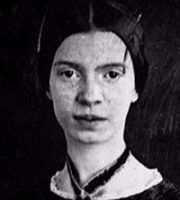by Garry Robert McDougall
On the Rioja’s dry plain, Belorado,
forever inhales the hot breath of summer,
exhales the sombre, grey mists of sinking autumn.
In the splish-splash of a Spanish winter,
it reflects on its dark millennia,
when once its duke challenged
the mighty House of Burgos.
The duke lost, the village stripped of its fine clothing,
for centuries without protective walls and fine castle,
its enemies seemed everywhere.
It knew no spring.
The village still coughs and splutters in irregular health,
rubbing its wrinkled skin in leather and onions.
Both churches have crumbling walls,
the town’s narrow streets cling to tattered charm,
begs for new life, hears only rumbling trucks,
tastes only diesel fumes.
For consolation, Belorado has its annual festival
of burning meat, beating drums, insistent trumpets,
complete with ritual sacrifice of the onion.
The village heart beats faster.
Wild men and women pump
through the narrow streets by night,
beating, blowing, blasting their instruments,
pounding the crumbling walls. What’s television?
The irrepressible rhythms insist
'Ghosts out! Ghosts. Ghost out!
'Ring those bells.
'Bells! Bells! Ring the bells.'
Without peace, riotous exclamation must suffice.
We all fear silence. Silencio,
whispers the wounded Duke-
'Do not bow to silence. Never!'
In the town square next morning,
festival over,
council’s men and women sweep away
cigarette butts, coke cans, wine bottles,
cardboard, cracker wrappings and cast-off clothing;
the street, mighty anathema to the Western mind.
As mid-day approaches,
youngsters abandon their brief slumbers
inhabiting the streets again,
spent, bare-buttocked and bewildered,
hours earlier, blasting out a mighty tune,
waking men and mice, mothers and masons.
What a racket!
You sit erect in your bed, clasping the clock-
'It’s 4am.'
‘Hear us! Hear us', the trumpeters say,
'it is official- 'festivities are over.
Ghosts are vanquished. Time to sleep.’
This Belorado is a hard place:
hard pillows, hard earth, sharp corners,
treeless farmlands, decorations at a minimum.
Crops fail, tools turn against you.
The smart one betrays you.
Some will block your path.
History has a bitter heart,
Spain stirred by the agony winds.
Ghostly semblances roam villages by night.
Dusty kings, dictators, bishops and republicans
wrestle in narrow laneways and apartment blocks
The stranger best linger in a bar,
bent before the vino-tinto shrine,
settling into a darkened corner,
watching life and football,
nursing bocadillos and sharing exclamations.
Thirty clocks surround you, collected over fifty years,
all beating time.
The barman grunts.
'Let the stray dogs and big ideas
fight over the bones behind the Calle Mayor.
Let the four-legged mongrels, thin, weak and weary,
loOk through windows with uncomprehending eyes,
merging into diablo walls.
You, Belorado.
Never-subdued Belorado.
History extracts its price.





